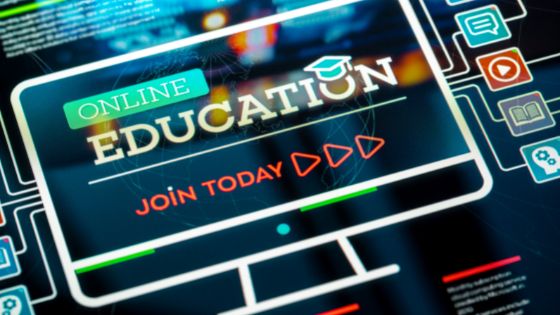Any student who is learning or studying without going to school in an online mode can be said “Online Education”. There is a number of ed_tech platforms that become unicorn during the lockdown time period because of the corona. Now there has been a debate among various stakeholders that we should continue online education even in the normal time. For some, we should again switch towards offline education. We will discuss here Online education is a boon than a bane by looking at all the aspects.

Points in the Favour
- Save resources – The expenditure on the maintenance of buildings, classrooms, and transport can be saved and utilized for bringing more innovative technology which students can learn.
- Beneficial to the environment – During offline vehicles are used for transportation of students. In transportation, buses and other vehicles are used which release CO2 and other pollutant gases, harmful to the environment.
- Easy to access – Anyone sitting in any corner of the world can easily access online classes.
- More options for the students – Students have the option to learn from various educators during online classes. There are more options available on the internet.
- Flexibility – If any student is not feeling well or any body part fractured, unable to walk, he has the option to attend class from his bed.
- Saves time and efforts of the students – The time which students waste travelling from home to school can be saved and utilized for learning new skills.
- Handle the issue of Disabled students – Any student who is handicapped can easily access online classes. They don’t need to go to the classroom for learning.
Independence Day Sale will arrive in just a few days. There are several online education portals that will reduce the prices of their subscription during the sale. All students who want to learn extra skills can take a subscription to these platforms at a very low price.
Points Against
- Creates Digital Divide in the education – In India there is a large number of families who fall below the poverty line. They can’t access smartphones for each of their children. Mostly this problem existed in rural areas. So, it might create a digital divide in the context of education.
- Not accessible for the poor – people who are poor can’t access luxury smartphones primarily required for online education.
- Slow internet – Still there are some areas in our country where there is a problem of low internet connectivity. The students from such areas can’t access online education.
- Smartphones are not enough to complete the needs of all the students. In each family, there is a need for at least 3 or 4 smartphones if parents want each child to learn online. For this, there is not enough manufacturing of smartphones in the country as per various data.
- Lack of Physical experience – During the online class, there is no physical interaction between students and teachers which is most vital for the overall growth of students. No teacher can pay individual attention to every student in online classes.
- Make students less socially active – Students will learn in an isolated mode during the online classes. There might be chances that their social development will hamper.
- Lack of team skills – In school, there is a number of extracurricular activities conducted which teach students extra skills apart from education which is necessary for their overall development. Online education can’t complete this need.
- There is not any proper method of conducting practical science or any other subjects in the online classes. For that students will certainly need proper labs which are available in schools.
Best Approach
In the difficult time after covid 19 which already hampered the education of students of the last two years, we need to take a balanced approach where we can take the best of both online and offline education systems. To fill the gap created in the last two years we need to reap the benefits of online education wherever it is possible. Schools are the best place for the overall development of the students. So we can’t just rely 100 per cent on online education. To get the best result, stakeholder needs to talk deliberately on this issue and try to fill all the lacunae in both the systems.

















